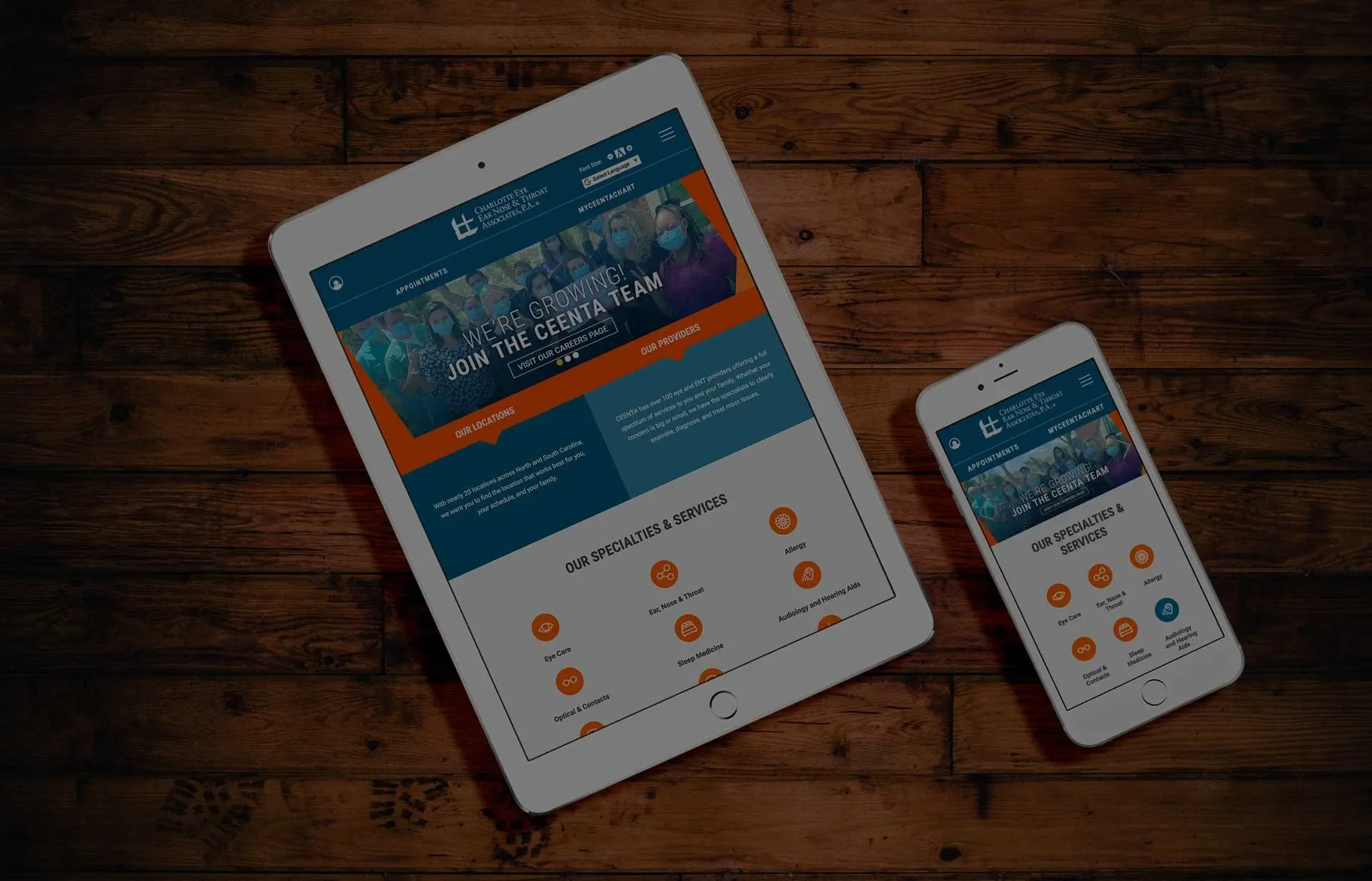When it comes to modern SEO, search engines like Google don’t just read your website - they try to understand it. One of the best ways to help them do that is with schema markup, a special type of code that gives search engines extra details about your pages in a language they understand.
In healthcare, this is especially valuable. Schema can help Google correctly identify your doctors, office locations, services, articles, and patient resources - which means your site is more likely to show up with rich results like star ratings, maps, appointment links, and featured snippets.
In this post, we’ll walk through the essential types of schema you should add to each major page type on your healthcare website, complete with ready-to-use JSON-LD examples.
1. Provider Biography Pages
Why it matters: These pages are all about your doctors, dentists, surgeons, or other providers. Google’s Physician schema helps search engines recognize them as real people with professional credentials.
Recommended Schema Type: Physician (a subtype of Person)
Example:
<script type="application/ld+json">
{
"@context": "https://schema.org",
"@type": "Physician",
"name": "Dr. Jane Smith, MD",
"image": "https://www.example.com/images/dr-jane-smith.jpg",
"medicalSpecialty": "Orthopedic Surgery",
"affiliation": {
"@type": "MedicalOrganization",
"name": "Example Medical Group"
},
"address": {
"@type": "PostalAddress",
"streetAddress": "123 Main Street",
"addressLocality": "Charlotte",
"addressRegion": "NC",
"postalCode": "28202",
"addressCountry": "US"
},
"telephone": "(555) 123-4567",
"url": "https://www.example.com/providers/dr-jane-smith"
}
</script>
2. Office Location Pages
Why it matters: Local SEO for healthcare is huge. If you want to show up in Google Maps and “near me” searches, structured data is essential.
Recommended Schema Type: MedicalClinic or Physician (if single-provider location)
Example:
<script type="application/ld+json">
{
"@context": "https://schema.org",
"@type": "MedicalClinic",
"name": "Example Orthopedic Center",
"image": "https://www.example.com/images/location-building.jpg",
"address": {
"@type": "PostalAddress",
"streetAddress": "456 Healthcare Drive",
"addressLocality": "Charlotte",
"addressRegion": "NC",
"postalCode": "28202",
"addressCountry": "US"
},
"telephone": "(555) 987-6543",
"geo": {
"@type": "GeoCoordinates",
"latitude": "35.2271",
"longitude": "-80.8431"
},
"openingHours": "Mo-Fr 08:00-17:00",
"url": "https://www.example.com/locations/charlotte"
}
</script>
3. Services & Specialties Pages
Why it matters: Google uses MedicalSpecialty schema to help match users searching for a specific service (like “hip replacement surgery”) with relevant pages.
Recommended Schema Type: MedicalSpecialty (embedded within MedicalClinic or Physician)
Example:
<script type="application/ld+json">
{
"@context": "https://schema.org",
"@type": "MedicalClinic",
"name": "Example Orthopedic Center",
"medicalSpecialty": "Orthopedic Surgery",
"url": "https://www.example.com/services/orthopedic-surgery"
}
</script>
4. Blog & Media Posts
Why it matters: Adding Article schema can improve your chances of appearing in Google Discover, news results, or with enhanced snippets.
Recommended Schema Type: Article
Example:
<script type="application/ld+json">
{
"@context": "https://schema.org",
"@type": "Article",
"headline": "5 Tips for Recovering After Knee Surgery",
"image": [
"https://www.example.com/images/knee-surgery-recovery.jpg"
],
"author": {
"@type": "Person",
"name": "Dr. Jane Smith"
},
"publisher": {
"@type": "Organization",
"name": "Example Orthopedic Center",
"logo": {
"@type": "ImageObject",
"url": "https://www.example.com/images/logo.png"
}
},
"datePublished": "2025-08-15",
"dateModified": "2025-08-15",
"url": "https://www.example.com/blog/knee-surgery-recovery-tips"
}
</script>
5. Patient Resources Pages
Why it matters: These pages often include instructions, downloadable forms, and patient education content. While there’s no single “Patient Resources” schema, you can use WebPage with a descriptive about property.
Recommended Schema Type: WebPage
Example:
<script type="application/ld+json">
{
"@context": "https://schema.org",
"@type": "WebPage",
"name": "Patient Resources",
"description": "Download patient forms, view insurance information, and access educational materials.",
"url": "https://www.example.com/patient-resources",
"about": {
"@type": "MedicalEntity",
"name": "Patient Care Information"
}
}
</script>
Bonus: FAQ Schema
Why it matters: FAQ schema is one of the easiest ways to earn more space in Google’s search results. If a page includes a list of common patient questions with answers, adding FAQPage schema can make those Q&As appear directly under your search listing.
Recommended Schema Type: FAQPage
Example:
<script type="application/ld+json">
{
"@context": "https://schema.org",
"@type": "FAQPage",
"mainEntity": [
{
"@type": "Question",
"name": "Do I need a referral to see a specialist?",
"acceptedAnswer": {
"@type": "Answer",
"text": "In most cases, a referral is not required, but check with your insurance provider to confirm your plan’s requirements."
}
},
{
"@type": "Question",
"name": "How can I schedule an appointment?",
"acceptedAnswer": {
"@type": "Answer",
"text": "You can schedule an appointment online through our website or call our office at (555) 123-4567."
}
}
]
}
</script>
Best Practices for Healthcare Schema
- Always validate your markup using Google’s Rich Results Test.
- Keep details (address, phone, hours) consistent across all online listings.
- Avoid overstuffing schema with irrelevant properties - accuracy is better than quantity.
- Update schema whenever a provider, location, or service changes.

The Bottom Line
Schema markup is one of the most underused SEO tools in healthcare marketing. By giving Google structured, machine-readable information about your providers, locations, services, and content, you’re helping it connect patients to your website faster and more accurately.
If you’re already on our Remedy CMS platform, much of the base schema for your web pages is automated via the programmatic schema capabilities of Remedy CMS - but understanding the basics means you can add custom enhancements anytime you want to give your SEO a boost.
« Back to Blog
- Expanding Graystone Eye’s Digital Ecosystem: A Multi-Brand, Multi-Site Strategy Built for Growth
- Healthcare Website Accessibility in 2026: What WCAG 2.1 AA Means and How to Prepare
- Crafting a High-Performance Orthopedic Website for Bluegrass Orthopaedics
- Healthcare Content Landing Page Guide
- Modernizing OrthoCarolina.com: Advancing a 20+ Year Digital Partnership in Orthopedic Website Innovation
One Partner - Every Digital Solution Your Practice Needs.
EHS is more than a vendor — we’re your long-term partner in building a stronger, smarter, and more compliant digital presence.

© 2026. All rights reserved. E-dreamz, Inc.

